In football, when a prolific offense encounters a punishing defense, the game is often billed as a contest of strength versus strength. The Pennsylvania primary certainly fits that description.
Donald Trump has generally been a powerhouse in big-state primaries, especially in the Northeast. The major exceptions have been when he was running against opponents who already hold office in the state or, by proxy, Scott Walker. Pennsylvania, which votes on Tuesday, is one of the biggest prizes in what figures to be a Northeastern winning streak for Trump, which he began in convincing fashion in New York.
Ted Cruz has been a master of the delegate-gathering process. He has done well in state-level caucus voting and even better at state and local GOP conventions allocating delegates, such as when he easily outmaneuvered Trump in Colorado and Wyoming. What Cruz lacks in organic popularity, he makes up for in organizational strength and grassroots activism.
John Kasich’s successes have been fewer and farther between. But the two-term Ohio governor remains the choice of many moderate Republicans turned off by Trump’s brash style and some establishment figures who equally dislike Cruz. Kasich also polls the best against Hillary Clinton, a fact that will be central to his pitch to Republican National Convention delegates when they meet in his Cleveland backyard this summer.
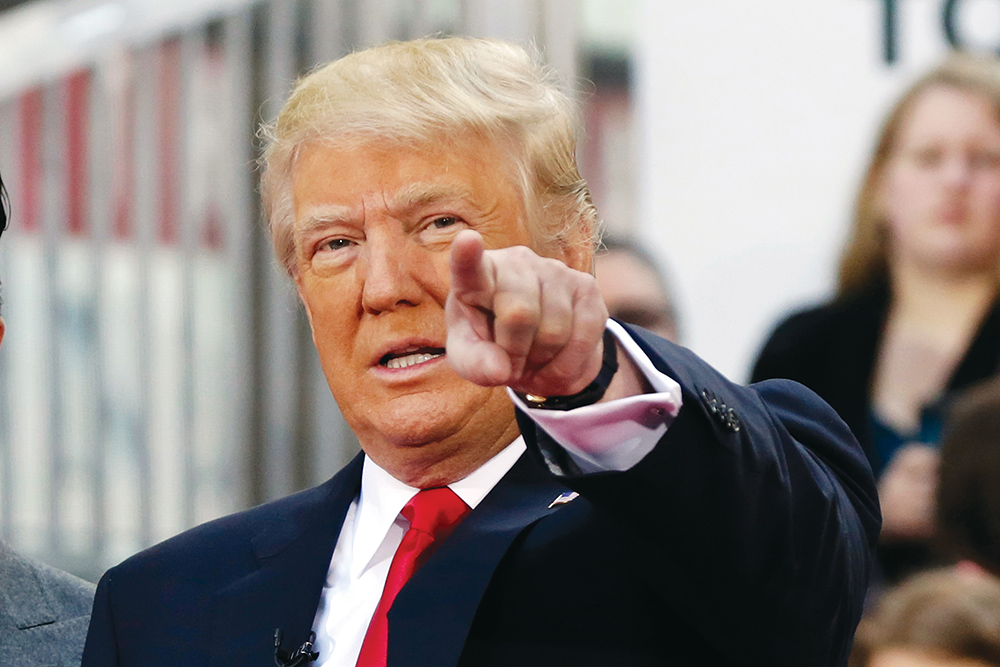
Donald Trump has generally been a powerhouse in big-state primaries, especially in the Northeast. (AP Photo)
Pennsylvania’s unusual delegate allocation rules make it an unlikely microcosm of the entire Republican presidential race. Trump should easily win the primary. The latest polls show him grabbing 40-48 percent of the vote. The RealClearPolitics state polling average has the billionaire leading by 19.2 percentage points. That lead is just five points behind Cruz’s overall share of the vote.
Strategic anti-Trump voting won’t be much of a factor, area Republicans tell the Washington Examiner, in part because Cruz and Kasich are so far behind and bunched together. “How do you pick which of them will be the best anti-Trump vote?” asked one GOP insider. “There will be strategic pro-Trump voting.”
But the primary vote won’t tell the whole story, and the results from the Tuesday primary won’t come close to finishing the Pennsylvania portion of this voting season. The winner will get only 17 delegates committed to him on the first ballot at the national convention. Another 54 delegates, three for each of the commonwealth’s 18 congressional districts, are unbound.
While they are elected at the same time as the presidential preference vote, there is no indication on the ballot as to which candidate they might support in Cleveland. Sometimes the delegate candidates won’t have even decided themselves.
“You can go in there and vote for Trump and vote for three delegates that are three votes against Trump,” Rep. Lou Barletta, R-Pa., pithily told the Associated Press. Barletta is a Trump co-chairman, and the delegate ambiguity has to have the billionaire’s campaign concerned.
Rep. Tom Marino, another Pennsylvania Republican lawmaker who is chairing Trump’s campaign in the state, has been calling possible delegates to convince them to back the popular vote winner on the assumption it will be Trump.
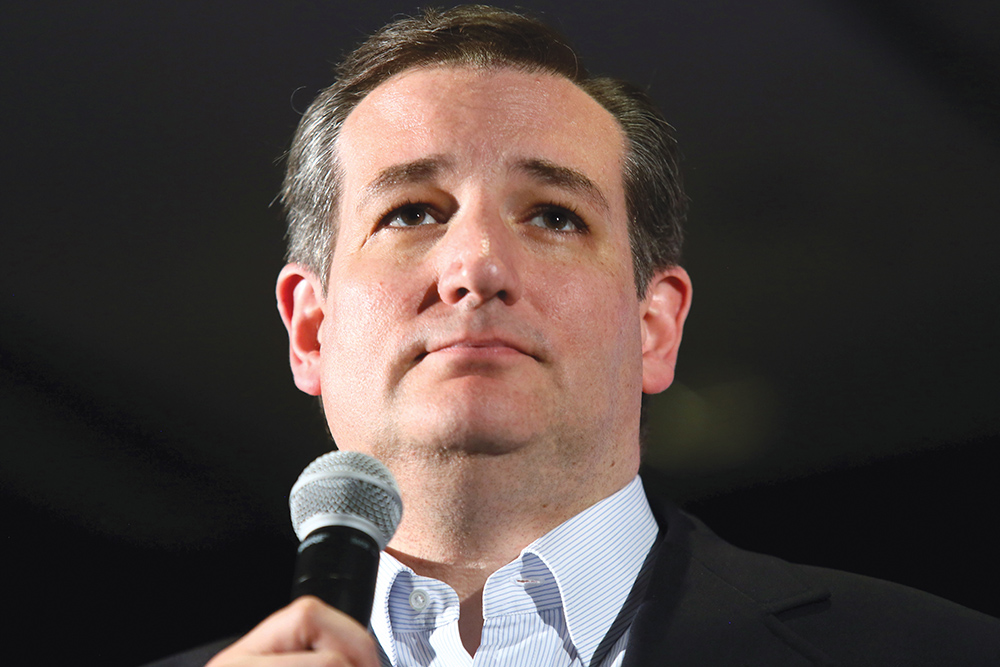
Ted Cruz has been a master of the delegate-gathering process. (AP Photo)
Even the 17 pledged delegates are no sure thing in a contested convention. They are bound to the primary winner only on the first ballot. After that, they become free agents. They will include the state party chairman, the two Republican National Committee members from Pennsylvania and 14 others handpicked by party leaders in May.
This would also seem to cut against Trump, while Cruz’s campaign has done a good job of influencing the selection of delegates who will have to vote for the front-runner in the early balloting but could be poached by the Texas senator in later rounds.
Kasich, Cruz chances
Could this be another case where Trump cleans up on Election Day but Cruz swoops in afterward and claims the delegates who will actually choose the nominee? That remains to be seen, but this will keep Pennsylvania in play long after the April 26 vote.
“Past performance is no guarantee of future success,” said Charlie Gerow, a communications professional who has been described by a local magazine as “Harrisburg’s most politically well-connected conservative” and a candidate for one of the unbound delegate slots himself.
Another factor is that Pennsylvania is a state where Kasich’s appeal to the Republican establishment is more than theoretical. A bevy of current and former Republican elected officials have endorsed him, including former Gov. Tom Ridge, former state party chairman Earl Baker, former Senate President Pro Tempore Bob Jubelire and former Rep. Bob Walker.
Walker is a well-respected conservative who was a Kasich ally on Capitol Hill during the heady days of the 1994 “Republican Revolution” and remembers the Ohioan’s contribution to the first balanced federal budget since 1969.
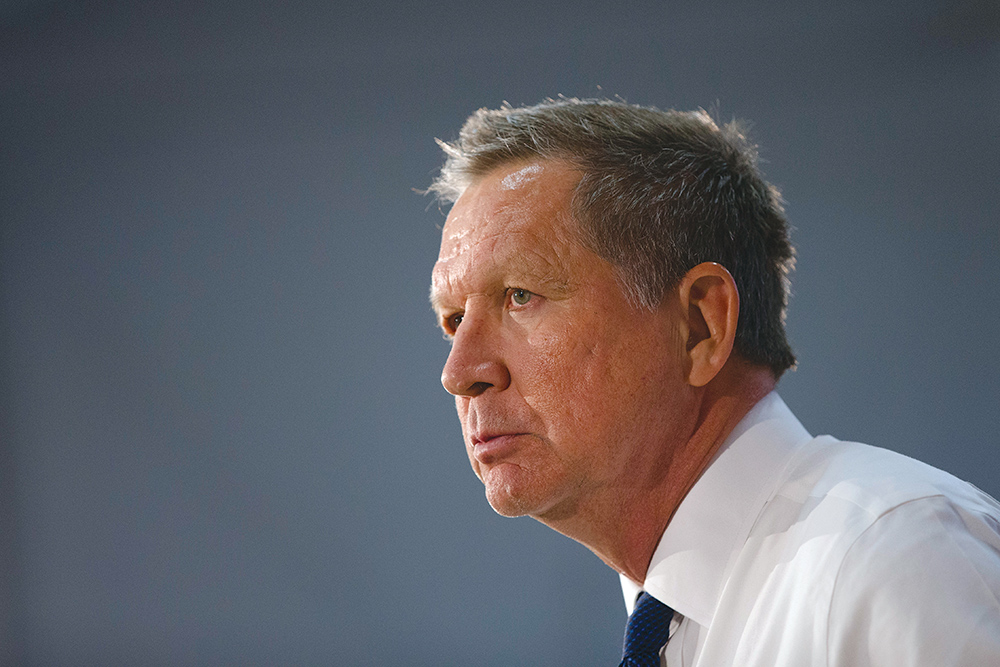
John Kasich’s successes have been few and far between. (AP Photo)
“He was born and bred here,” Gerow said, referring to Kasich’s hometown of McKees Rocks, Pa. Kasich was initially polling in second place, but has slid to third in more recent surveys. That could change after New York, where he ran second and was the only candidate who denied Trump a clean sweep of that state’s 95 delegates.
Some anti-Trump voters could conclude that Kasich is the better bet throughout the Northeast when it comes to keeping their bete noire below the 1,237 delegates he’ll need to clinch the Republican nomination on the first ballot.
“In John Kasich, they see a guy who’s thoughtful, who’s careful, who’s measured and electable,” Rep. Charlie Dent, R-Pa., told the Examiner. “John Kasich is well-positioned to win here. We know that he is performing well in the collar counties of Philly, Lehigh County and you also see that here in the Hershey region and the capitol region, absolutely. It’s fertile territory — he’s the favorite son! So for all these reasons, he’ll do well.”
Ohio is also a state that borders Pennsylvania, and a lot of voters see Buckeye State media, so that adds to Kasich’s familiarity. New York borders Pennsylvania too, so voters are well aware of his relative success there.
Cruz will have a strong appeal to Pennsylvania conservatives. Let’s not forget this is a state that twice elected Rick Santorum to the U.S. Senate.
“James Carville is right that Pennsylvania is Philadelphia and Pittsburgh with Alabama in between,” said Jeffrey Lord, a former White House political director during the Reagan administration and a high-profile Trump supporter in the state. “You want to do well with Republican voters in the Philadelphia suburbs, but the conservative part of the state is where [candidates like Cruz] really get to run up their margins.”
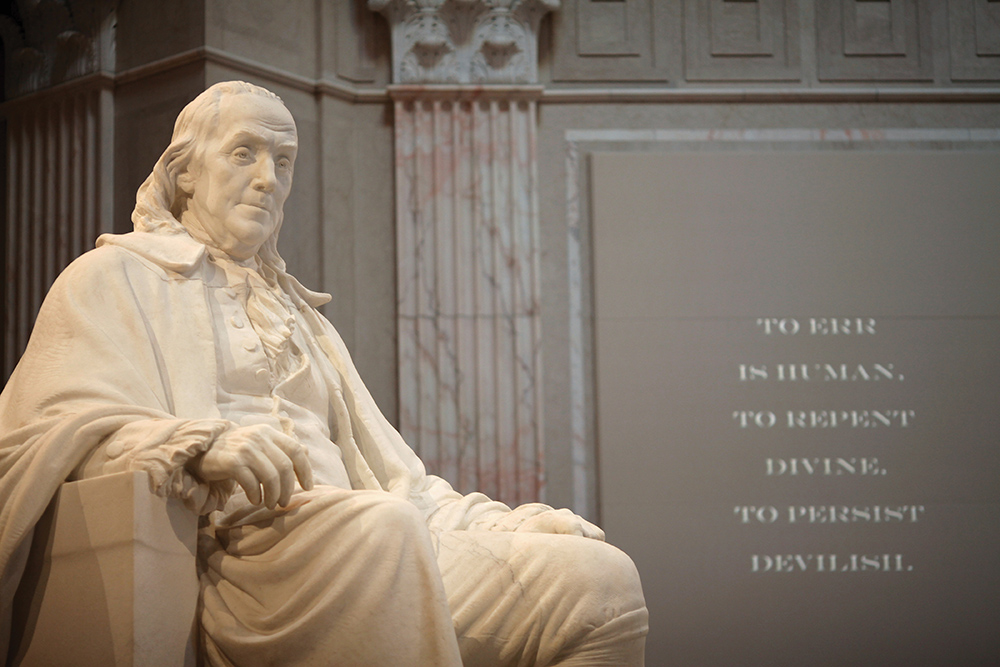
Pennsylvania will be in play long after the April 26 vote. (iStock Photo)
“I think he’ll play well in parts of the ‘T,'” Dent said of Cruz, referring to parts of the state outside of Philadelphia and Pittsburgh. “He’ll play well particularly in suburban Pittsburgh. You think of Dauphin County — this is a great county … but I see how he’ll have a very strong appeal in some of the most critical areas of this commonwealth in order to win … I feel very strongly that he’ll play well.”
Cruz did worse than expected in the New York primary and is generally struggling in the Northeastern and Mid-Atlantic states, based on polls and previous election outcomes. That could dampen enthusiasm among his supporters and depress his vote among Republicans looking to stop Trump. Some area Republicans cautioned that his organization might not be as finely tuned as in other states, while others maintain he is still the best organized.
Yet he has regained second place from Kasich in recent polling, and the Tea Party darling certainly has his supporters in Pennsylvania. “He’s the only consistent conservative in the race right now,” said Casey Long, the 35-year-old chairman of the Lebanon County GOP. “He talks the talk, but he also walks the walk. He’s got a proven record of standing up against President Obama and his liberal policies, and he would make the best president of the United States.”
No matter how Cruz does in the primary, he will be involved in the delegate chase afterward. The question is how applicable Cruz’s past delegates successes will be to Pennsylvania’s unique set-up.
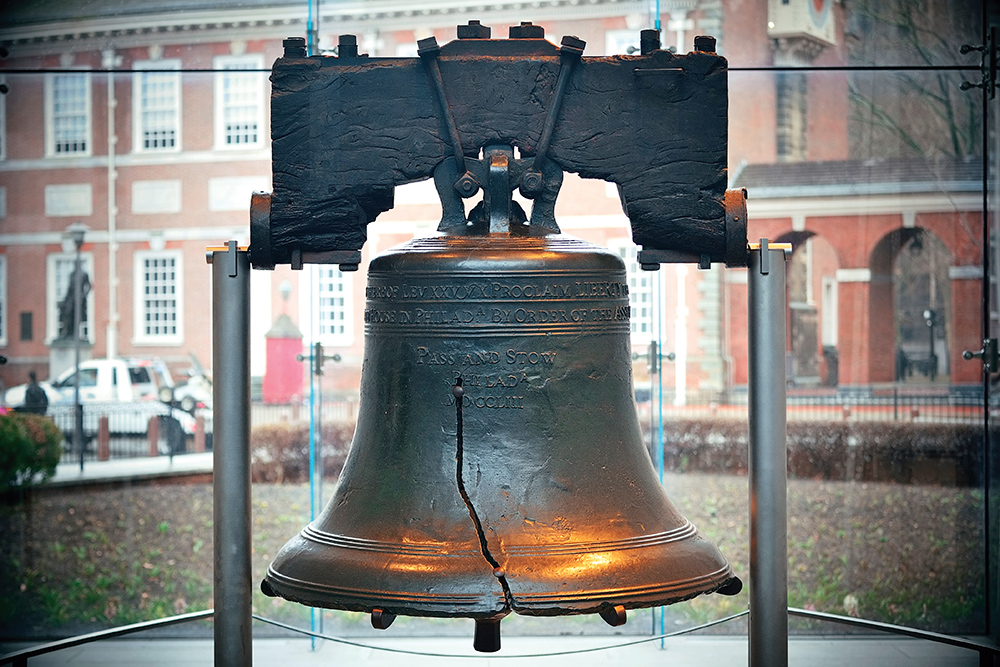
The unusual delegate allocation rules in Pennsylvania make it an unlikely microcosm of the entire Republican presidential race. (iStock Photo)
“Not very,” said Gerow, a delegate at three previous conventions. Some of the 170 candidates for delegate are running explicitly as supporters of particular presidential candidates. Lord noted that Trump backers have put up a website that tries to identify delegate candidates who are known to be supportive of their candidate.
Other campaigns are involved in similar activities. But many of these unbound delegates are truly uncommitted. Some will support whomever their state or congressional district votes for, regardless of their personal preference. Others are willing to do that only on the first ballot. Some delegate candidates see it as their responsibility to pick a conservative (music to Cruz’s ears) or their duty to find the strongest general election candidate (they can probably expect to hear from Kasich). Still, others are pledging to back whomever wins the popular vote.
“I think margin of victory will matter, especially in the congressional districts,” said Gerow, when asked if there was anything the presidential preference vote could do to sway the eventual delegates. Many will want to keep Pennsylvania influential in the process.
Pennsylvania Republicans vying for delegates take their responsibility seriously. They often harken back to their forbearers’ role in swinging the party’s nomination to Abraham Lincoln at the convention in 1860. There are more recent examples.
Ronald Reagan tried to win over Pennsylvania senators by preemptively naming the state’s Sen. Richard Schweiker as his running mate ahead of the last contested convention in 1976, but Drew Lewis kept the delegation in line for Gerald Ford (the selection of the more liberal Schweiker also annoyed some conservative delegates). In 1980, Lewis was with Reagan and delivered him Pennsylvania delegates, even though George H.W. Bush won the primary that year.

“You want to do well with Republican voters in the Philadelphia suburbs,” said Jeffrey Lord, a former White House political director during the Reagan administration and a high-profile Trump supporter in Pennsylvania. (iStock Photo)
Republican leaders point to these past convention stories when rebutting Trump’s complaints that the system is rigged against him. “In 1976, Ronald Reagan got a million more votes than President Ford in the primaries,” a group of past Republican National Committee chairmen, including Bob Dole and Haley Barbour, wrote in the Wall Street Journal. “But Reagan did not win a majority of the delegates, President Ford did, and so he received the nomination … That’s how it works.”
Paul Manafort, Trump’s new point man for the delegate process and an increasingly influential figure in the real estate developer’s campaign, is a veteran of that 1976 convention. That’s one reason some say you can’t count Trump out in the Pennsylvania delegate game or beyond.
“Trump is both Reagan and Ford,” Lord said. “He is leading in the popular vote and the delegate count. Ford needed 28 delegates to get the majority. Cruz is going to need hundreds.” He added, “If Trump is close to 1,237 in June, the pressure on these delegates is going to be enormous.”
Apart from the delegates, Pennsylvania has the potential to feed into the narrative that Trump has regained momentum. While the calendar shifts back into Cruz’s favor in May, the media is heavily based in the Northeast. A series of wins stretching from New York to New Jersey is going to gain a lot of attention and lead to a growing number of stories about how the billionaire has mathematically eliminated his opponents, perhaps making it a self-fulfilling prophecy.
Trump has been holding his familiar rallies in Pennsylvania. Even in his recent more restrained form, he has made headlines with his promises to bring back the statue of legendary-turned-disgraced Penn State coach Joe Paterno and his usual bravado. But the attention that the 54 Pennsylvania delegates are going to get from all three campaigns even after they’ve moved on to other states’ voters is going to be anything but the norm.
Al Weaver contributed to this report.
